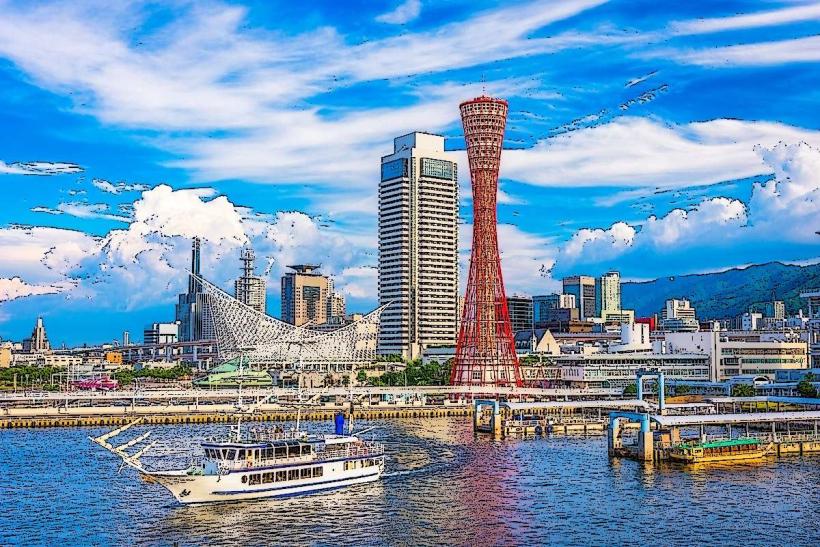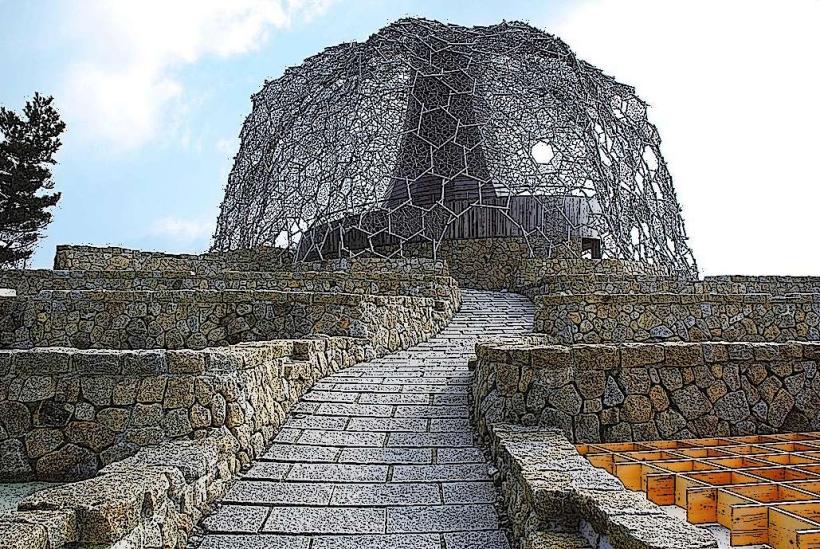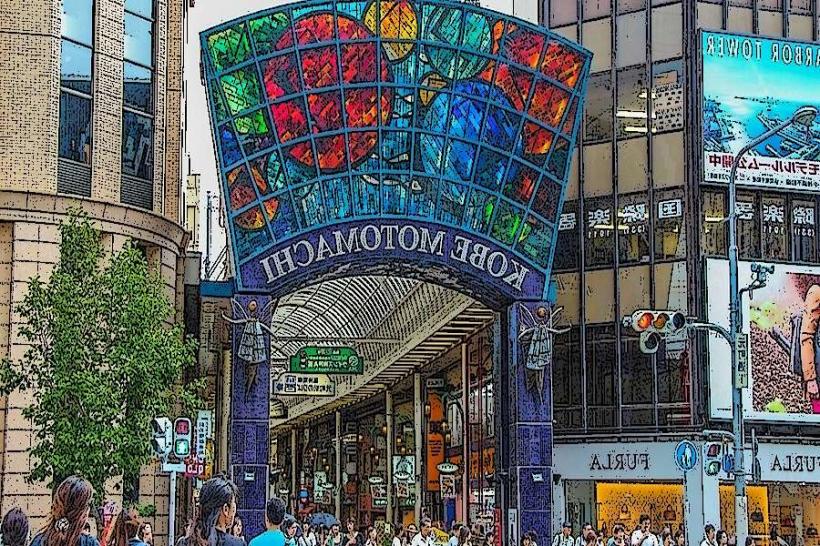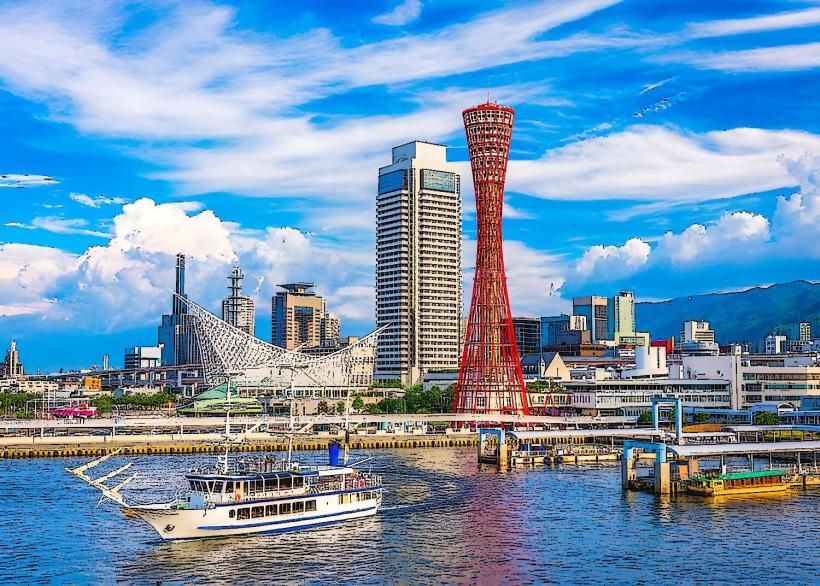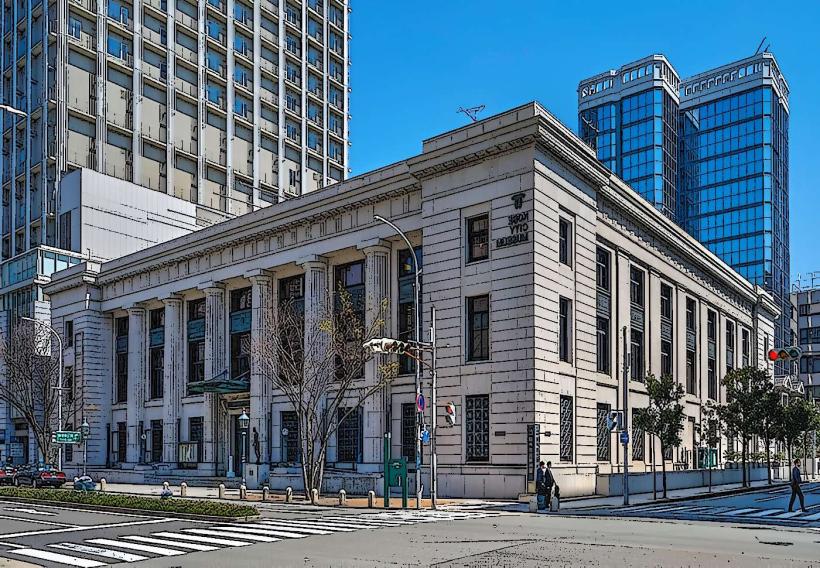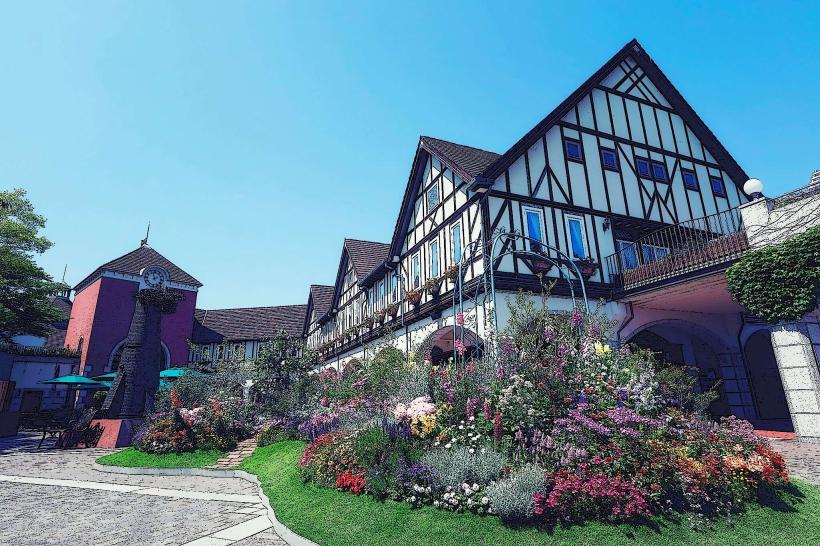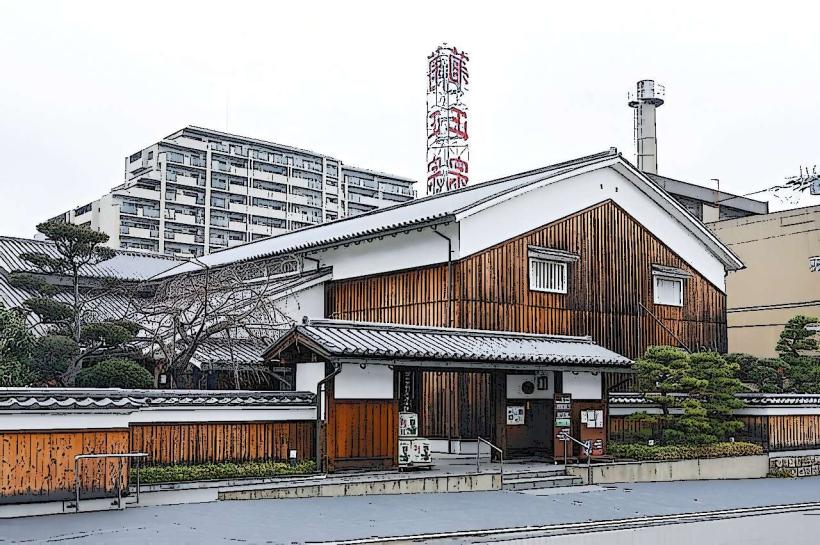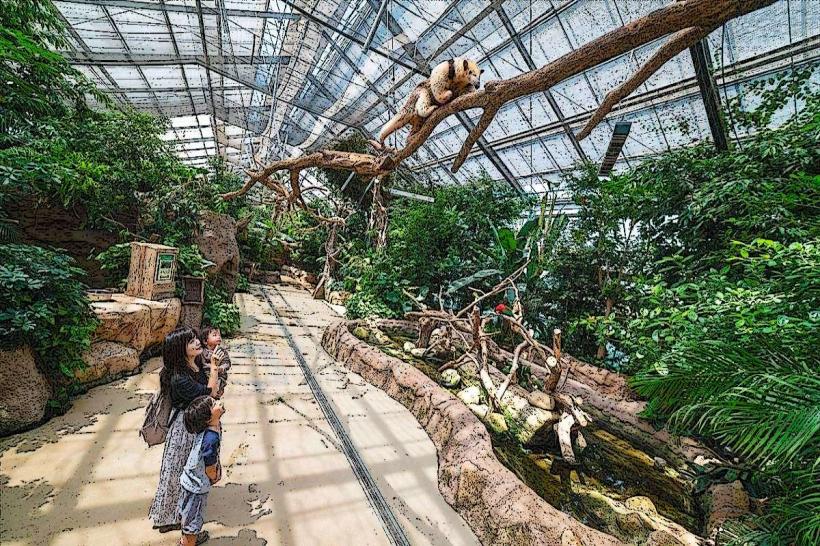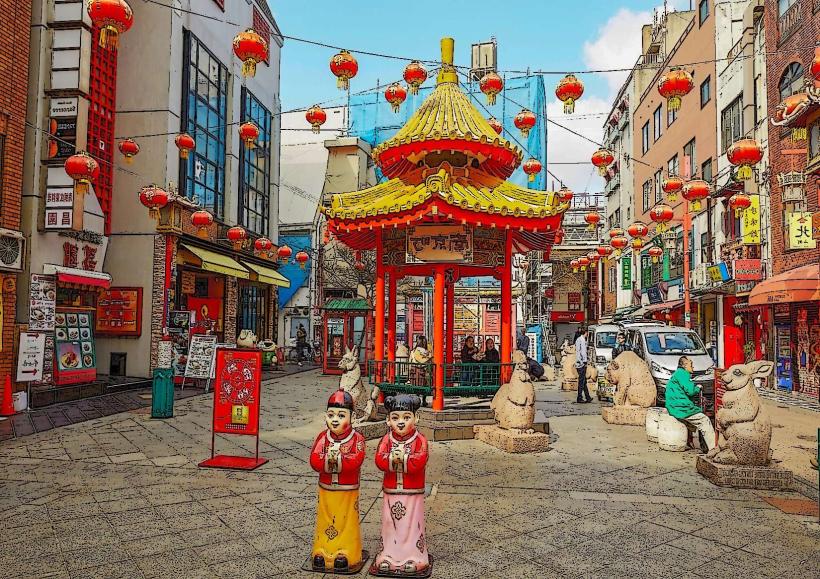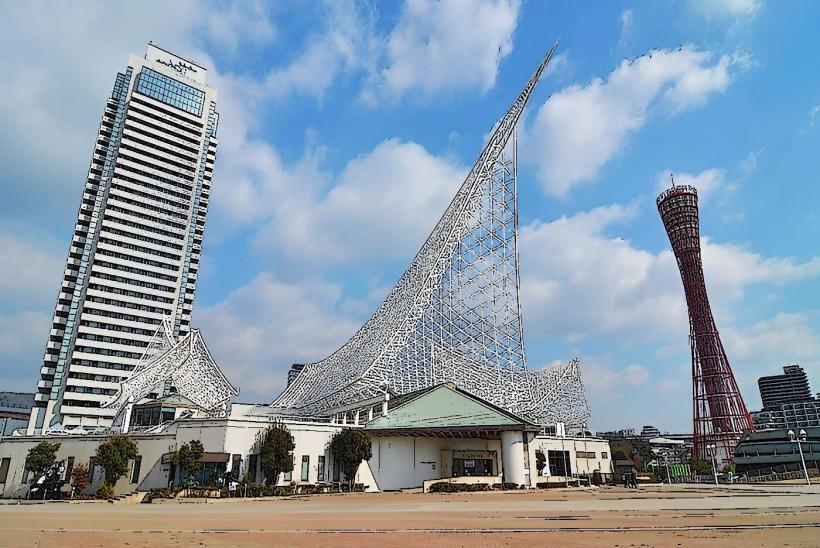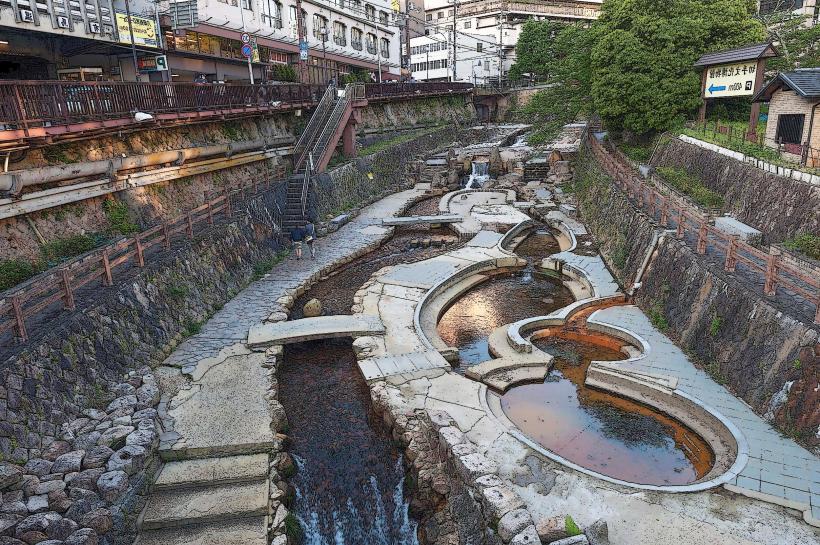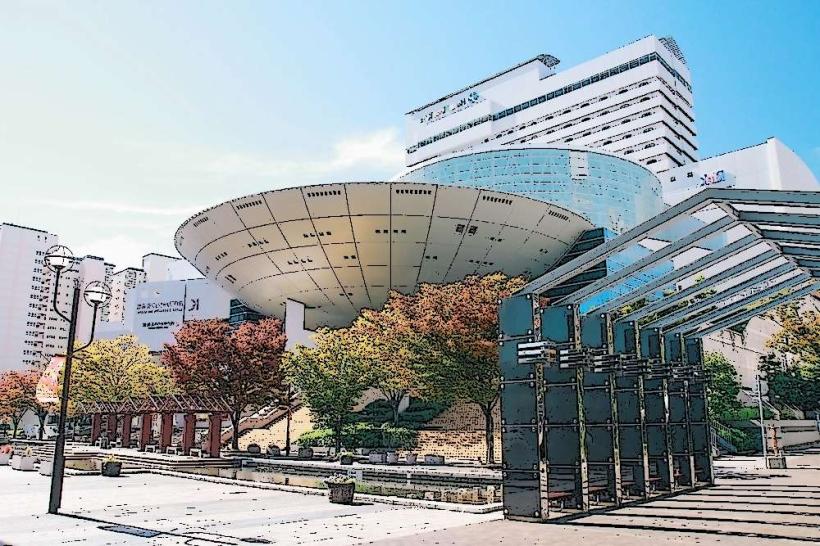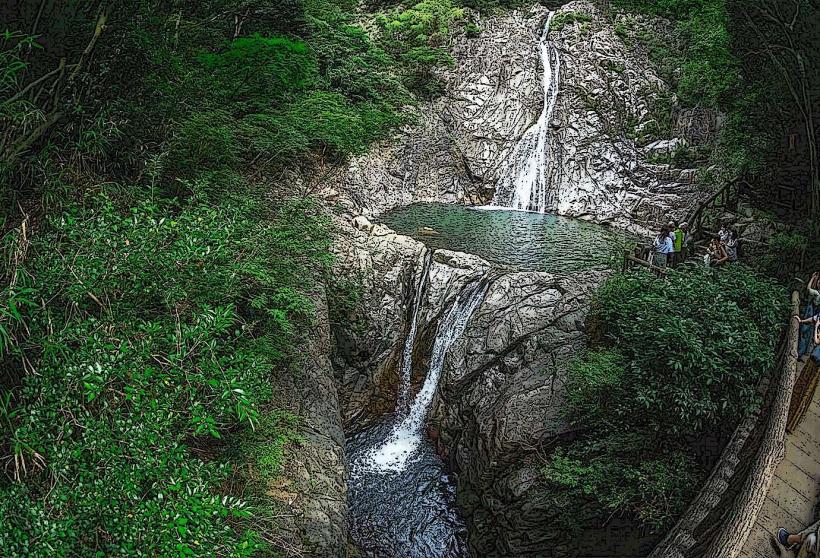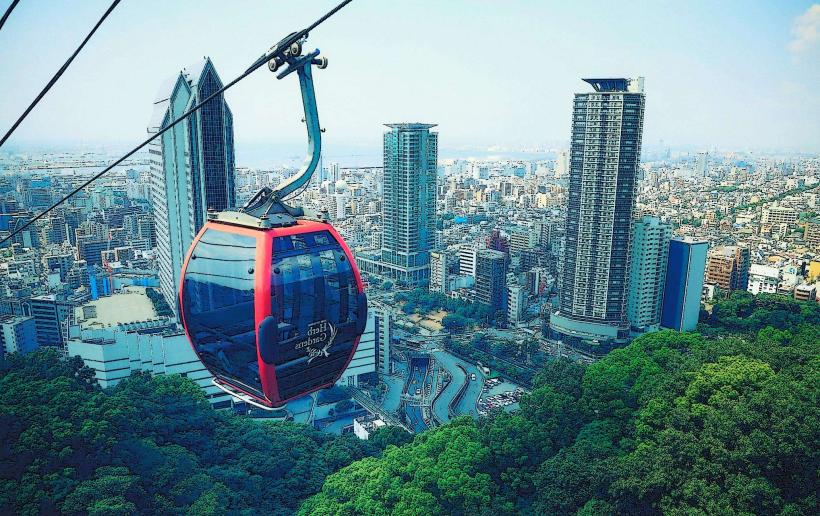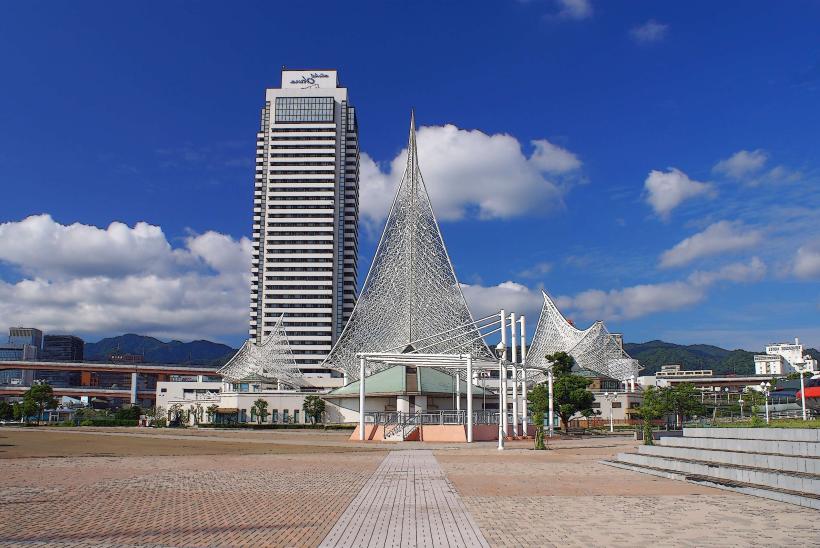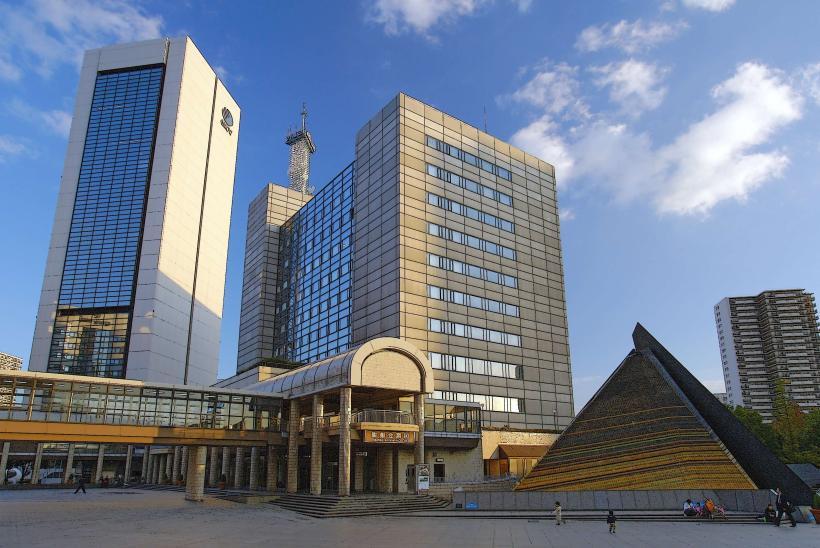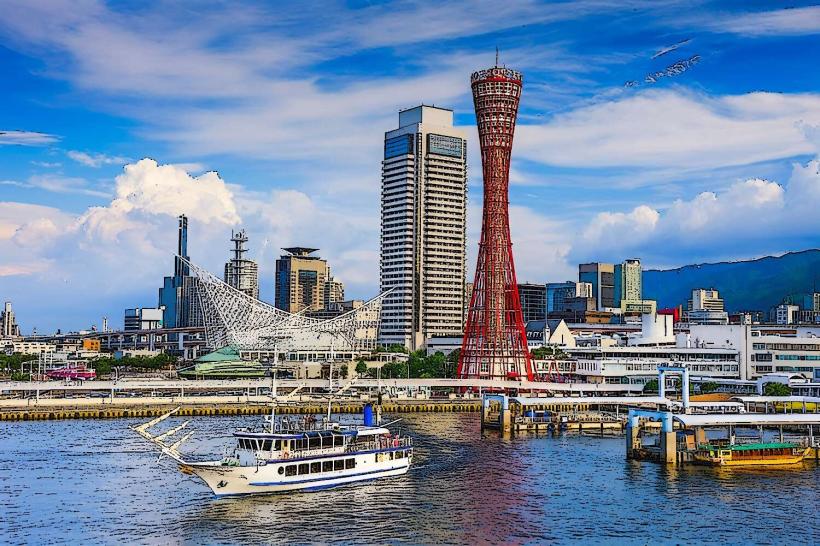Information
Landmark: Ikuta ShrineCity: Kobe
Country: Japan
Continent: Asia
Ikuta Shrine, Kobe, Japan, Asia
Ikuta Shrine is a Shinto shrine located in the Chuo Ward of Kobe, Japan.
It is one of the oldest shrines in the region, with a history dating back to the 3rd century.
Visual Characteristics
The shrine complex features vermilion-lacquered wooden structures, characteristic of traditional Japanese shrine architecture. The main sanctuary is a two-story building with a hipped roof. The grounds are characterized by dense cedar and cherry trees, with a small river, the Ikuta River, flowing through the eastern section.
Location & Access Logistics
Ikuta Shrine is situated approximately 1.5 kilometers north of Sannomiya Station, the central transport hub of Kobe. Access is via walking distance from Sannomiya Station (approximately 15-20 minutes) or by taking the Hankyu Kobe Line to Shinkaichi Station, followed by a 5-minute walk. Limited street parking is available in the vicinity, but dedicated visitor parking is not provided. Bus routes 2, 15, 75, and 202 stop near the shrine entrance.
Historical & Ecological Origin
Ikuta Shrine was founded in 201 AD by Empress Jingū. It is believed to be one of the oldest shrines in Japan. The shrine's original purpose was to enshrine the deity Wakahirume-no-Mikoto, the goddess of agriculture and weaving. The surrounding area is a natural forest, historically significant for its role in the Battle of Ikuta during the Genpei War.
Key Highlights & Activities
Visitors can participate in purification rituals at the temizuya. The main sanctuary is open for prayer and observation. Walking paths wind through the shrine grounds, offering views of the river and surrounding trees. Seasonal events and festivals are held throughout the year.
Infrastructure & Amenities
Restrooms are available within the shrine complex. Shaded areas are provided by the natural tree canopy. Cell phone signal (4G/5G) is generally good within the shrine grounds. Food vendors are not present within the immediate shrine area, but numerous restaurants and convenience stores are located within a 5-minute walk in the surrounding urban district.
Best Time to Visit
For photography, early morning (7:00 AM - 9:00 AM) offers soft, directional light. The best months for visiting are spring (March-May) for cherry blossoms and autumn (October-November) for pleasant temperatures and fall foliage. There are no tide-dependent activities at this shrine.
Facts & Legends
A local legend states that the Ikuta River's water has healing properties. The shrine is also known for its connection to the legend of the warrior Minamoto no Yoshitsune, who is said to have prayed here before a significant battle.
Nearby Landmarks
- 0.8km South: Kobe City Museum
- 1.2km Southwest: Tor Road
- 1.5km South: Sannomiya Station
- 2.0km West: Kitano Ijinkan District

